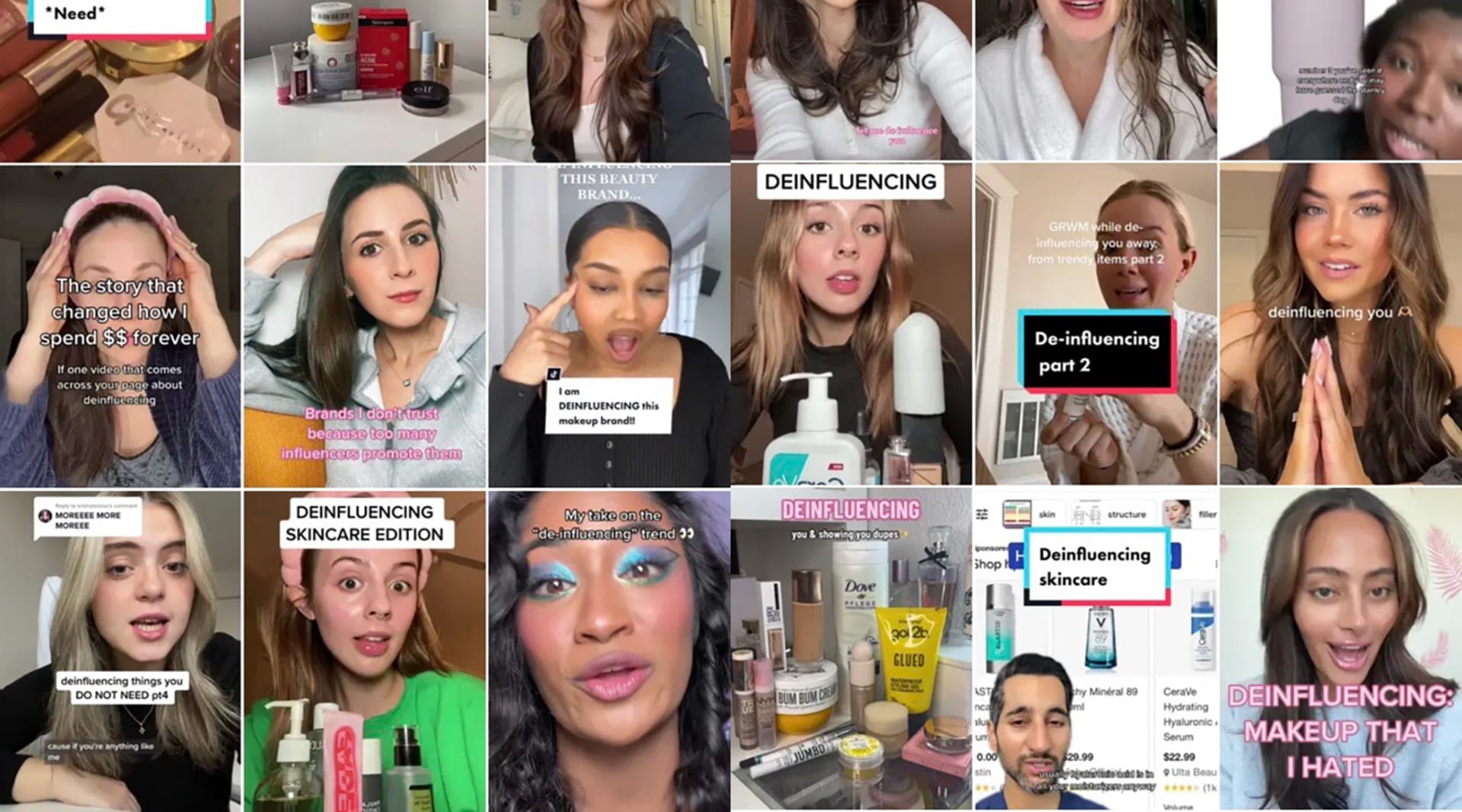Jay Richards, Co-founder at Imagen Insights, gives VML Intelligence his perspective on gen Z's attitudes towards overconsumption. "The reality in relation to sustainability and overconsumption is that, in the UK specifically, we’re amidst a terrible cost of living crisis. Gen Z, in particular, is a demographic that wants to feel accurately represented and who truly value relatability. For many young people right now, the notion that you need to buy the latest fast fashion, make up drop or latest model of phone is unattainable which is resulting in a move towards a more mindful approach to consumerism."
According to Vogue, the future of influencer
marketing will be both offline and niche. Traditional high-profile celebrity endorsements are losing favor with fact-focused consumers. Instead, they’re turning to promoters they can relate to, whose preferences they trust and therefore will listen to when it comes to product promotions.
Foundations of trust and honesty are imperative to the success of a de-influencer. Hyram Yarbro, a popular beauty and skincare voice on social media platforms, is well known for his hot takes and product recommendations. However, his popularity did not translate to the selling of his own product launch, which faltered quickly in sales and has since been pulled from physical shelves at Sephora. It was his authentic perspective that gained him fame: something he couldn’t translate to his own branded line due to the financial interest attached to it.
Consumers across industries have become their own watch dogs who search for genuine, expert recommendations and are weary of unsubstantiated advice from online personalities. De-influencers are winning consumer trust by acknowledging that not every product is for every consumer, that some items cost more than they’re worth, and highlighting which brands, products, and services will be most beneficial to the consumer.
"We’re in constant dialogue with our community and what we’re hearing is a true desire for transparency," Richards says. "Social media is definitely seeing a move towards becoming a more openly honest place, which is long-needed. I think this is being driven by a desire from Gen Z to understand and educate themselves about the wider issues society is facing and to also counteract the fact that for so long social media has not been reflective of real life goings on."


